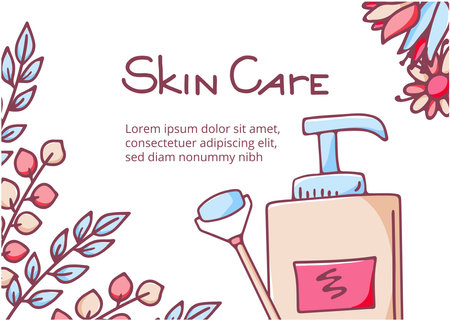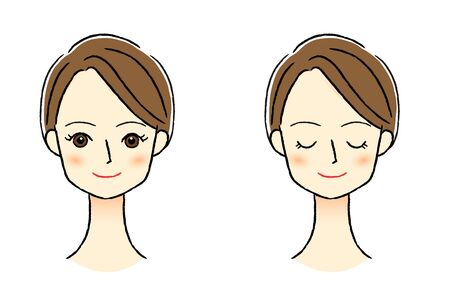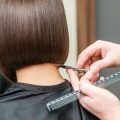Understanding Prescription Skincare in the UK
When it comes to anti-ageing, prescription skincare is a term that often surfaces in British beauty and medical circles. But what does it really mean in the context of the UK? Unlike over-the-counter products that line our high street chemists and department store shelves, prescription skincare refers to medical-grade creams, serums, or treatments only available through a healthcare professional—typically a GP or dermatologist. Within the British medical system, these solutions are designed to target specific skin concerns with clinically proven active ingredients at concentrations unavailable in standard beauty products.
In Britain, access to prescription skincare traditionally begins with a consultation—either with your NHS GP or through a private clinic. While the NHS remains the most common route for those seeking help for medical skin issues, such as severe acne or eczema, private clinics have become increasingly popular for those interested in cosmetic or anti-ageing treatments that may not be covered by public health services. This dual pathway reflects the pragmatic yet discerning approach many Brits take toward their personal care: balancing expert advice with accessibility and cost.
Whether navigating an NHS referral or investing in a private dermatology appointment, understanding how prescription skincare fits into the wider landscape of anti-ageing is key. It’s not just about chasing youth—it’s about embracing evidence-based solutions tailored to individual needs, all within the unique structure of British healthcare.
Common Prescription Ingredients for Ageing Concerns
When it comes to tackling the visible signs of ageing, British GPs and dermatologists tend to favour a pragmatic, evidence-based approach—one that leans on prescription skincare ingredients with robust clinical backing. In my own journey consulting with local NHS doctors and private skin specialists, Ive come to appreciate how these key actives not only deliver results but are also tailored to the unique needs and climate of UK skin. Lets delve into the most commonly prescribed anti-ageing ingredients seen in British clinical practice.
Retinoids: The Gold Standard
Retinoids, derived from vitamin A, are frequently recommended by UK dermatologists for their proven ability to boost collagen production and accelerate skin cell turnover. British GPs often prescribe tretinoin or adapalene for patients looking to reduce fine lines, improve texture, and address pigmentation. While some may initially experience dryness or mild irritation (especially in our damp British weather), with proper guidance from your GP, these side effects can be managed effectively. Over time, many find their complexion appears firmer and more radiant—a true testament to retinoids’ transformative power.
Azelaic Acid: For Sensitivity and Pigmentation
If your skin is prone to redness or post-inflammatory hyperpigmentation (a common concern in the UK due to our unpredictable weather), azelaic acid is a much-loved option among British practitioners. This gentle yet effective ingredient not only tackles uneven tone but also soothes sensitivity—making it ideal for those who might find retinoids too harsh. Many GPs recommend azelaic acid as part of a broader prescription regimen, especially for patients dealing with both rosacea and early signs of ageing.
Topical Antioxidants: Shielding Against Environmental Stressors
Given the UK’s notorious mix of pollution and rainy days, antioxidants such as vitamin C and niacinamide are increasingly being prescribed or recommended by GPs. These powerhouse ingredients help neutralise free radical damage while brightening dull complexions—a must-have for urban dwellers exposed to environmental stressors. In my own experience trialling these under NHS supervision, I noticed a marked improvement in my skin’s resilience and glow.
Summary Table: Common Prescription Ingredients in UK Anti-Ageing Skincare
| Ingredient | Main Benefits | Common Prescription Names | Notable Advice from British GPs |
|---|---|---|---|
| Retinoids (e.g., Tretinoin) | Smooths fine lines, evens tone, increases cell turnover | Tretinoin cream, Adapalene gel | Start slowly; use moisturiser to combat dryness; apply at night |
| Azelaic Acid | Reduces pigmentation, calms redness, gentle exfoliation | Finacea gel, Skinoren cream | Ideal for sensitive or rosacea-prone skin; use daily |
| Topical Antioxidants (e.g., Vitamin C) | Protects against environmental stressors, brightens skin | L-ascorbic acid serums, Niacinamide creams | Layer under SPF during daytime; suitable for most skin types |
A Personal Note on British Clinical Wisdom
The beauty of prescription skincare in the UK lies not just in the science but also in the artful way British GPs tailor regimens to our climate and lifestyle. By focusing on dermatologist-approved ingredients like retinoids, azelaic acid, and antioxidants, they help us navigate the complexities of ageing gracefully—and with a certain understated elegance that feels uniquely British.

3. Advice from British GPs: When to Consider Prescription Options
Having spent years navigating the ever-expanding world of high street anti-ageing products, I’ve often wondered: when is it time to take things up a notch and seek professional advice? This question isn’t just mine; it’s one echoed by many Brits who are quietly battling the first signs of ageing. British GPs, with their distinctly practical approach, generally suggest sticking to over-the-counter solutions as long as they’re effective and your skin concerns remain mild. But there comes a moment—often when those fine lines seem to deepen overnight or stubborn pigmentation refuses to budge—when a prescription option is worth considering.
From conversations with local GPs, I’ve learned that the tipping point usually arrives when you’ve tried reputable shop-bought remedies (think retinol serums and nourishing moisturisers) for several months without noticeable improvement. At this stage, GPs might recommend medical-grade treatments such as topical retinoids or prescription-strength creams, which have more robust clinical evidence behind them. What’s unique about the British perspective is our cultural reluctance to ‘make a fuss’—many of us hesitate to book a GP appointment unless we feel our concerns are truly significant.
There’s also a sense of stoicism woven into the fabric of British attitudes towards skincare: embracing wrinkles as a badge of honour rather than something to be erased at all costs. That said, there’s an increasing openness among Brits to seeking expert advice, especially as we become more aware of the science behind skin health. For me, the reassurance that comes from consulting a trusted GP—a figure who won’t upsell but will offer honest guidance—makes all the difference when considering prescription options. It’s about striking that delicate balance between embracing age gracefully and making use of what modern medicine can safely offer.
4. Combining Prescription Treatments with Lifestyle Changes
When it comes to slowing the signs of ageing, British GPs are unanimous: prescription skincare, while powerful, works best when partnered with classic UK lifestyle habits. The guidance from seasoned practitioners is clear—no prescription can outshine the basics of good living. Let’s explore how British wisdom weaves together science and tradition for radiant results.
Prescription Skincare as Part of a Holistic Routine
GPs across the UK often emphasise that prescription creams or serums (such as retinoids or topical antioxidants) are most effective when paired with everyday lifestyle choices. The key message? You can’t expect miracles from a tube alone; your daily rituals matter just as much.
Classic UK Staples to Support Your Skin
| Lifestyle Staple | Why It Matters for Anti-Ageing | British GP Tips |
|---|---|---|
| Balanced Diet | Nourishes skin from within, supports repair and elasticity. | Embrace seasonal veg, oily fish, and wholegrains—think Sunday roast with lots of greens! |
| Sun Protection | Prevents sun damage—a top cause of premature ageing. | Apply SPF year-round—even on those famously grey British days. |
| Stress Management | Chronic stress can accelerate skin ageing and dullness. | Practice mindfulness, enjoy a walk in the park, or savour a proper cup of tea. |
A British Approach to Everyday Skincare Success
What sets the UK approach apart is its blend of pragmatism and care. GPs remind us that even the finest prescription isn’t a substitute for a hearty diet, regular exercise (a brisk stroll by the Thames counts!), and diligent sun protection. In fact, many recommend setting reminders to reapply SPF during unpredictable weather—because in Britain, you never know when the sun might make an appearance! Ultimately, it’s this harmonious mix of medical innovation and beloved British routines that brings out the healthiest glow at every age.
5. The Patient Experience: Navigating the NHS and Beyond
If you’ve ever considered prescription skincare for anti-ageing here in the UK you’ll know the process is a journey in itself. It often begins with booking a GP appointment—a task that can test your patience as much as your skin’s resilience! When you finally sit down in that familiar surgery waiting room there’s always a sense of anticipation: will your concerns be taken seriously or waved away as mere vanity? British GPs are known for their pragmatic approach and they’ll typically want to understand not just what you hope to achieve but also your medical history, lifestyle and expectations. This is where honesty and a bit of British understatement go a long way; being clear about your goals helps your GP decide if prescription treatments like topical retinoids or azelaic acid might be suitable.
The next step—should your GP agree—can feel oddly momentous: the walk to your local chemist with that coveted prescription slip in hand. There’s something undeniably reassuring about collecting a treatment that’s been tailored specifically for you, especially when it comes from the familiar pharmacy counter tucked inside every high street Boots or Superdrug. Pharmacists here are friendly fonts of wisdom, always ready with advice on application, side effects, and even gentle reminders about sun protection (because British weather can be deceiving).
Of course, the NHS has its limitations; prescription options for anti-ageing are somewhat narrow and most GPs will only prescribe them when there’s a clear clinical need—think acne or severe sun damage rather than fine lines alone. For many Britons, this means exploring private clinics or seeking recommendations for over-the-counter alternatives. There’s a certain comfort in knowing you’re part of a wider community navigating these choices together—swapping stories online, chatting with friends at coffee mornings, or quietly comparing notes while waiting for the 8am Boots restock.
In the end, what truly stands out is how personal this journey is. From initial curiosity to committing to a new routine, each step offers its own small rituals and rewards. Prescription skincare through the NHS isn’t always straightforward but it remains a uniquely British experience—grounded in pragmatism, guided by expert advice, and carried out with an undercurrent of quiet optimism.
6. What to Expect: Results, Side Effects, and Follow-Up
British GPs are often keen to set realistic expectations when it comes to prescription skincare for anti-ageing. You might notice subtle improvements in skin texture and tone within a few weeks, but significant changes—such as a reduction in fine lines or pigmentation—can take several months of consistent use. It’s not an overnight transformation; patience truly is key.
Possible Side Effects and Adjustments
As with many effective treatments, prescription skincare can bring about side effects, especially in the early stages. British GPs frequently mention common reactions such as mild redness, dryness, peeling, or irritation—particularly with active ingredients like retinoids or hydroquinone. Most of these symptoms settle as your skin builds tolerance, but your GP may recommend easing into new products gradually or adjusting the frequency of application if discomfort persists.
The Importance of Regular Reviews
GPs across the UK stress the value of regular follow-up appointments. These reviews are not just a box-ticking exercise—they’re essential for monitoring your skin’s response and making timely adjustments to your regimen. If you experience troublesome side effects or aren’t seeing progress after a reasonable period, your GP can offer alternatives or tweak concentrations to better suit your needs.
Safety First for Lasting Results
Your safety is always at the forefront of British medical advice. Prescription skincare should always be tailored by a professional who understands your unique skin type and health history. Through ongoing dialogue and careful supervision, British GPs help ensure that your journey towards healthier, younger-looking skin is both effective and safe—making anti-ageing a collaborative effort rather than a solo pursuit.


